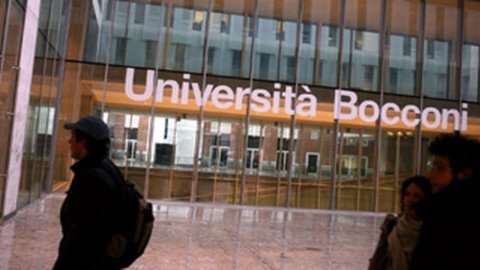Other than crisis, it is precisely in periods of recession such as the one that the global economy is going through that companies, especially the financially healthier ones, should not miss the opportunity to obtain double extra returns through mergers and acquisitions.
This is stated by a study conducted by Carefin Bocconi and Goldman Sachs, presented today at the Milanese university, which contains an analysis by Stefano Gatti and Carlo Chiarella of Carefin: the position paper has analyzed 1.248 M&A operations with an average value of 1 billion euro conducted in Europe from the beginning of 2001 to the end of 2012, in which both the acquiring company and the target company were listed on the stock exchange. Well, the 348 mergers and acquisitions completed in the periods of crisis following the bursting of the technology bubble in 2002, the real estate market bubble in 2008 and the sovereign debt crisis in 2011 achieved Double extra returns compared to the 900 transactions completed in normal times. 180 days after the conclusion of the transaction, the shares of the purchasing companies beat the market by 2,62% in periods of economic calm and by 5,34% in times of crisis.
However, the result contrasts with the observation (also confirmed by the data of this research) that in times of economic uncertainty the number of M&A operations decreases significantly. On the one hand, in fact, the economic turbulence makes it more difficult to evaluate the target companies, undermines the value of the buyer's experience in transactions of the same kind and complicates the post-integration phase. On the other, however, times of crisis present a great window of opportunity for the best buyers, i.e. financially sound companies that have liquidity, have strong bargaining power and can therefore afford to choose the best targets.
The two scholars also observe that the characteristics of transactions in times of crisis do not substantially differ from those of M&As in normal times. The only substantial differences are the significant decrease in the value of hostile takeover operations and greater use of the method of payment in shares, rather than in cash, even at the cost of recognizing the target a higher premium than its market valuation.
The historical trend of the number and value of the transactions concluded from 2007 to 2012 shows that American, Japanese and Asian companies they were able to react to the situation of uncertainty and, after the general decline recorded between the end of 2008 and the beginning of 2009, they reabsorbed the shock and returned to the market. On the other hand, European companies do not take advantage of the external growth opportunity offered by the M&A market: in the third quarter of 2007 Europe represented 42% of the global M&A market and collapsed to 21% in the fourth quarter of 2012.
Download the full position panel




